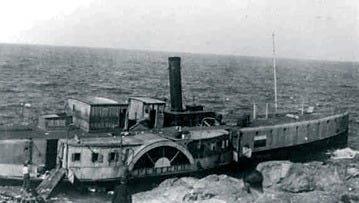An Improbable Escape
The Remarkable, Distressing Voyage of the Pentcho
The Slovakian town of Bratislava sits on the River Danube, close to the border with Austria. Formerly known as Pressburg, and once part of Hungary, the town had been a centre of Jewish life for hundreds of years, the home of a dynasty of rabbis descended from the scholarly but strictly conservative Moses Sofer. By the 1920s, however, Bratislava’s significance to Jews was less to do with its rabbis and more to do with the escape route it offered for those fleeing to the west.
Large numbers of Jews left Eastern Europe in the wake of World War I, a regional upheaval which saw the collapse of the Austrian-Hungarian Empire and the consequences of the revolution in Russia. Many of those leaving were trying to dodge forcible conscription into the Polish army, a lengthy and brutal period of service from which not all returned. Others were leaving to escape the hostile nationalism of the newly independent Polish state, with its antisemitic discrimination and pogroms to which the authorities turned a blind eye. Some were simply seeking a more prosperous life in the West. Others still were driven by the new Zionism with its goal of establishing a homeland for the Jews in their ancestral land. Whatever their motivation for leaving the East, Bratislava was where they could find a network of activists providing them with practical assistance for the onward journey.
The flow of Jewish refugees into Bratislava continued into the 1930s. Now however, they were coming from Germany not Poland, determined not to live under Nazi rule. Sensing desperate times ahead, Gisi Fleischmann, one of the Bratislava activists, led the efforts to help the refugees. She established contact with charities and support networks across Europe and travelled to Paris and London seeking funding and assistance. With colleagues, she saved dozens of refugees who had been expelled from Austria and were now living on a derelict barge in the middle of the Danube, having been refused entry into any other country. She was in London in 1939 when Slovakia became a Nazi-allied republic. Her friends tried to persuade her to stay in England; she refused and returned home.

